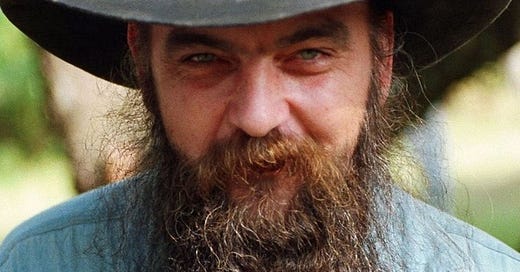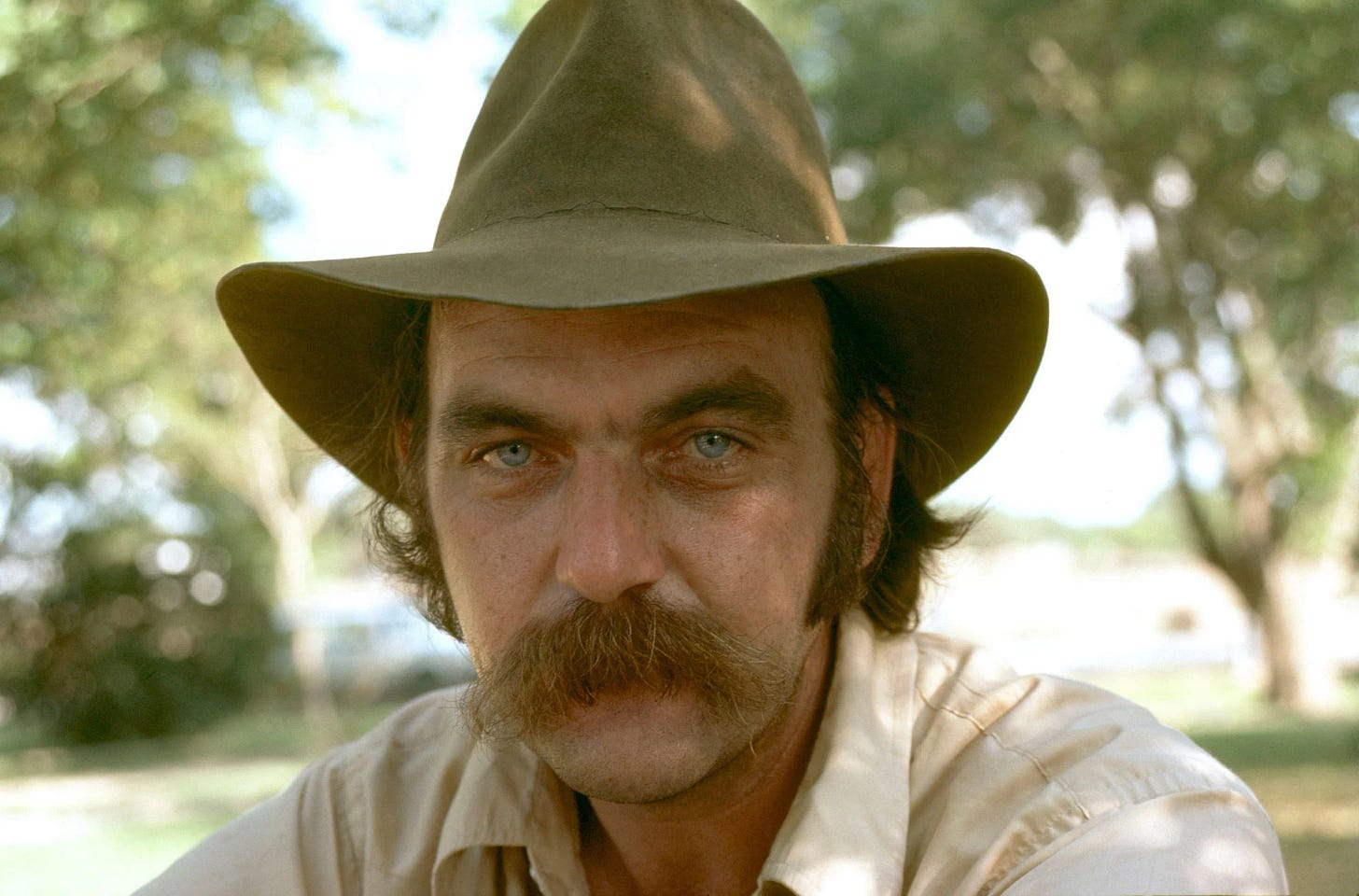I was the type of kid who thought spiky bracelets were a cool thing to wear when I was fourteen, yeah. Metal was the music that woke the musical part of my brain up when I was young, and very soon I realised that the more extreme the better I’d like it, so I went through the whole black metal scene discovery and obsession in the mid-90s and stuff like that, while always consuming all the death, doom, thrash and more traditional heavy metal I could find too. You know, the typical metal kid that gets made fun of in nostalgia movies and series right now. I wasn’t Eddie from Stranger Things because I was only born in 1978 and my hair isn’t curly (and truth be told, I was never much into the”battle jacket” and patches thing). On the other hand, however, I’ve always had, fortunately, a wider musical radar at work, not only veering my tastes into the sort of more left field part of heavy music - for metal standards at least - like noise rock, grunge, noise, grindcore and all the more experimental and “post” stuff that started to appear like Neurosis and suchlike, but also stuff that wasn’t “heavy” at all, not in that sense at least, like singer/songwriters. As I discovered extreme music, I was simultaneously getting seriously into people like Nick Cave, Tom Waits, Leonard Cohen, Neil Young, Johnny Cash, Simon & Garfunkel or Elliott Smith, among many others. And their records sat just fine alongside Darkthrone’s, Autopsy’s or Iron Maiden’s records.
It never seemed to me that those two “worlds”, if such separations even exist in music, were that far apart from each other, and fortunately (I do believe it’s a good thing) some musicians who did cross that frontier in the last couple of decades have helped them become closer than ever, be it Scott Kelly and Steve Von Till from Neurosis being instrumental in making Townes Van Zandt almost a household name for fans of heavy music, or Scott Walker having made an album with Sunn O))), or Johnny Cash turning ‘Hurt’ into something all of his own, or any of those. Or, you know, if you want to go as further back as these genre bridges go, Judas Priest covering Joan Baez’ ‘Diamonds And Rust’. So I think it’s not so much of a stretch to open a section here on The Devil’s Mouth specifically to check out and share with you a few of the singer/songwriters that I like, whether they’re old favourites or new discoveries. Not that they’ll be absent from the regular programme of the site, but this thing I’ve called INNER SELF is specifically their spot from now on.
And hey, even if it would be a stretch, whatever. It’s my party and I’ll cry if I want to. Also, let me warn you I’m not too precious about what “singer/songwriter” means. I’m not stuck on the sort of troubadour/acoustic folk style that more or less generated the term and is still the most associated with - Anna Von Hausswolff is as much a singer/songwriter as Bob Dylan is for me. I also don’t care if they have a band or not, or what name they’re known as - Nick Cave can bring all of his Bad Seeds to the party, Scott Kelly can take The Road Home or drive alone, and Sam Beam or Natalie Mering can have Iron & Wine or Weyes Blood written on their namecards. It’s all good.
Right, enough introductions! Onwards for the first name on the list. A gentleman called…
BLAZE FOLEY
Though Michael David Fuller, Blaze’s real name (“Blaze Foley” came from his admiration of Red Foley and Blaze Starr), was far from being an unknown during his short life - he was shot dead at 39, and his death was so sad and unnecessary and just so fucking American in the worst sense of the word, that I’d rather skip it altogether and you can go read about it if you like -, it’s become easier to run into his music in the last few years, especially because of the Ethan Hawke-directed biopic released in 2018. I’m the wrong person to judge biopics as I’m not at all a fan of the genre, and I personally prefer Kevin Triplett’s 2011 documentary, but hey, Ethan Hawke seems to have had the best intentions with it, and Blaze’s wife Sybil Rosen was involved as co-writer, as the story was actually based on her memory, ‘Living in the Woods in a Tree: Remembering Blaze Foley’, so do check it out if you’re into that sort of thing. Without it, Blaze might still be more of a hidden treasure, a cult legend in Texas (he was born in Arkansas but his career was mostly built and developed in Austin, Texas where he eventually settled) and one for scattered weirdos everywhere.
Nicknamed The Duct Tape Messiah, reportedly due to his propensity to use said product constantly to fix just about everything - it’s said that he made jokes about BFI (Browning-Ferries Industries, a waste management company) dumpsters, usual in the region at the time, standing for Blaze Foley Inside -, which even lead to his friends (Townes Van Zandt included) covering his casket with duct tape at his funeral, he was an unruly, unstable performer, who often found it difficult to get proper gigs because of his increasing reputation, though everyone who knew him closely also talks of kind, gentle man with great sensitivity and emotional depth. His life in general was a bumpy ride full of bad luck and even worse decisions, at least according to what we know. As so many legendary artists, a lot of what we might believe happened during his 39 years on this planet is clouded in various amounts of mystery and hearsay.
As it would be predictable, his discography is spotty and all over the place. Most of the master tapes for his studio albums have disappeared in uncanny circumstances (seriously, from DEA drug busts to floods to robberies), but regardless of how you get to these songs, just make sure you do. Hell, maybe you even know a couple of them already even if you’ve never heard of Blaze Foley - ‘If I Could Only Fly’ was a huge hit when Willie Nelson and Merle Haggard performed it in 1987 on their duet album, and you guessed it, that’s a Blaze Foley song:
There is a reason why those and other artists of such stature recognise the genius in this and other songs. Blaze has that hard to pinpoint quality that people like Townes or Jim Croce had, something that makes their songs unmistakably their own, from their specific turn of phrase to the quiet, heart-on-their-sleeve sort of melancholy they drip with. Take as an example the way I discovered Blaze myself, and let that also be an example for how important cover versions can be for the listener to branch out and discover things, because it was precisely through someone else singing Blaze that I got to him - none other than the great Tim Barry, whose fantastic 2014 album ‘Lost & Rootless’ found its way straight into my heart and set up permanent residence there upon its release. Please note that this means no disrespect to Tim’s own songs, believe me when I say every single note of that album is sheer perfection (and my current favourite from it happens to be one of his own, closer ‘Mayfly’), but the thing is that after the first few listens, one song did stand out as a little bit different for some reason. Tim has a thing with trains and the song is even sort of about taking a train and roaming about, so I never thought at first it might be someone else’s song, but yeah, when I found out ‘Clay Pigeons’ was a version of a song by someone named Blaze Foley, I had to go and investigate, as the depth of emotion in that song is almost too much. Lines like “Smokin' cigarettes in the last seat / Tryin' to hide my sorrow from the people I meet / And get along with it all”, or “I'm tired of runnin' 'round / Lookin' for answers to questions that I already know / I could build me a castle of memories / Just to have somewhere to go”, sung as they are, will have an effect on you. And so Blaze’s Foley sad, strange and wonderful world opened up to me. Here’s Tim’s version, as a little thank you:
So, where to start if you too were unfamiliar with Blaze and want to brave this new world? Personally, I love the ‘Wanted More Dead Than Alive’ compilation as it features almost all my favourite songs of his, but honestly, get what you can find and you won’t go wrong. There are no lesser Blaze Foley songs, a lot of them pop up in different versions on several albums/compilations, so if you’ll end up liking it, being a completist won’t take you too long in this case. Unfortunately, he didn’t have time to build a bigger body of work. But what remains is a legacy never to be forgotten, so, tip of the hat to ya, Mr. Foley. Godspeed.








